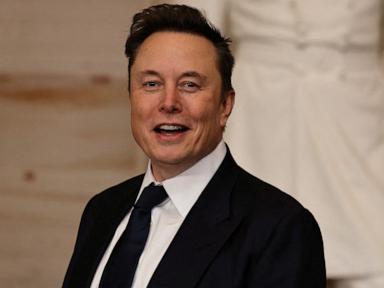A quick way to cut $1 trillion in federal spending

President Trump was on to something when he suggested that state governments should have the primary responsibility for handling disasters — and most other matters as well. The federal government taxes individuals who send their tax dollars to Washington, and then the feds hand back to the states more than a trillion dollars each year. Do we really need that federal middleman? Why not lower federal taxes, leaving more money with individuals? States could then access those funds to address their needs.
In fact, if Trump succeeds in drastically shrinking the federal workforce, states may have little choice but to take the lead in meeting whatever challenges they may face.
In fiscal 2023, federal transfers to state and local governments came to $1.1 trillion, about 17.6 percent of all federal spending, according to USAFacts.com.
Federal government handouts to state and local governments had been gradually rising since 1990. However, 2020 saw a significant increase as the feds started shoveling out pandemic-relief money to the states, peaking at $1.4 trillion in 2021, then declining slightly to $1.3 trillion in 2022.
It’s understandable why the government would ladle out money during the early days of the pandemic when much of the economy was shut down. But the pandemic has dramatically declined and is mostly an annoying blip today. Even so, federal handouts remain elevated.
Over half of the 2023 distribution to the states, $634.2 billion, was for their Medicaid and Children’s Health Insurance Programs. Some of the federal money went to education, highways and the Supplemental Nutrition Assistance Program (formerly known as "food stamps"). And $286.4 billion went to various other purposes. Clearly, some of those funds provide important assistance for millions of Americans.
But the point is the money initially belongs to people living in the states. The federal income tax extracts that money from those citizens and transfers it to Washington. Then federal politicians and bureaucrats return some of that money to the states — but only after Washington has extracted its pound of flesh.
If federal taxes were lower, leaving that money with taxpayers, the states would still have access to that money — they would just have to appropriate it themselves. Thus, it is possible that taxes might go up in some states to offset the loss of federal handouts. But the amount needed would almost certainly be much less than what taxpayers are spending now because the current system is rife with distorted economic incentives.
First, politicians use the handouts to gain support from voters in their home states. Of course, Rep. X won’t vote for Rep. Y’s proposed “pork barrel-spending” unless Y votes for X’s pork, which is how federal spending balloons.
Second, most states game the jointly funded, federal-state programs to maximize the federal dollars states receive. This has been a problem with the Medicaid program for decades. States find ways to appear to be spending more on health care than they really are in order to increase the federal matching funds.
Third, federal dollars can be a bailout fund for poor state management. Just look at recent wildfires in Los Angeles. There has been a lot of commentary blaming California’s elected leaders — especially Gov. Gavin Newsom (D) and Los Angeles Mayor Karen Bass (D) — for their mismanagement of state and city resources. Many of the Golden State’s “natural disasters” have been a result of, or exacerbated by, political and financial mismanagement.
But the mismanagement isn’t restricted to disasters. Various state and labor pension plans also turn to Washington when they are underfunded. And politicians come seeking federal bailout money when they mismanage certain projects, like California’s high-speed railroad. Thus, taxpayers living in well-managed states have to cross subsidize those living in poorly managed states.
Of course, even if the states were to become the primary player when addressing natural and manmade crises, Congress could still vote to provide relief in extraordinary cases.
Is the idea of cutting federal taxes and letting states handle their challenges far-fetched? That was the original idea behind the U.S. Constitution’s Tenth Amendment, which says that all powers not explicitly delegated to Washington were reserved for the states and the people. And given Trump’s effort to cut taxes and make states more responsible for meeting their needs, the time may have come.
And even if Congress couldn’t eliminate all the $1.1 trillion in federal outlays, it could cut hundreds of billions of dollars, leaving that money in the states.
Turning to the federal government for financial assistance ought to be the states’ last resort, not the first. As far as states go, “U.S.” needs to stand for Uncle Sam, not Uncle Sugar.
Merrill Matthews is a public policy and political analyst and the co-author of “On the Edge: America Faces the Entitlements Cliff.”
Topics
-

DOGE can cut spending, but can it make government more accountable?
Donald Trump could deliver lasting change, by returning power back to the people where it belongs.The Hill - 34m -

As Musk cuts federal spending, his own firms have received billions in contracts
As Elon Musk has led an effort to slash government spending, his own companies have, over the last few years, received billions of dollars in government contracts.ABC News - 2h -
Federal judge blocks Trump administration cuts to medical research funding
The National Institutes of Health says the cuts will save more than $4 billion a year, but critics say it puts potentially lifesaving research in jeopardy.CBS News - 15h -
Jim Jordan backs Elon Musk’s authority to cut federal government
“It's something that people evaluated and voted for on November 5,” the Ohio Republican said.Politico - 1d -

Federal judge grants restraining order on NIH funding cuts
A federal judge in Massachusetts has granted a restraining order against the National Institutes of Health (NIH) and its recent research funding cut after 22 states filed a lawsuit to block the ...The Hill - 17h -

2025 Super Bowl picks, Chiefs vs. Eagles odds, SGP, bets from unbiased model: This 6-way NFL parlay pays 25-1
SportsLine's Model reveals its top Super Bowl 59 picks, NFL best bets, NFL parlay picks, NFL parlay card, NFL predictions, and 25-1 football parlay for Kansas City vs. PhiladelphiaCBS Sports - 1d -

Trump vows to cut billions of dollars from US defence spending
President says ‘fraud and abuse’ at Pentagon will be Elon Musk’s next targetFinancial Times - 1d -

Judges block Musk's efforts to slash federal spending
Federal judges block President Trump and Elon Musk's attempts to slash spending and reshape the federal workforce. NBC News' Aaron Gilchrist reports.NBC News - 2d -

Small Businesses and Contractors Also Get Hit by Trump’s Federal Funding Cuts
Reports suggest several thousand private sector jobs have been lost in the last two weeks, as federal funding freezes start having knock-on effects.Inc. - 3d
More from The Hill
-

DOGE can cut spending, but can it make government more accountable?
Donald Trump could deliver lasting change, by returning power back to the people where it belongs.The Hill - 34m -

Dozens of US organizations condemn Trump Gaza plan
Social justice organizations based in the U.S. issued a Monday joint statement condemning President Trump’s plans to redevelop the Gaza Strip, effectively displacing Palestinians from their ...The Hill - 39m -

Biden viewed least favorably among living presidents: Gallup
Former President Biden is viewed the least favorably among all living presidents, following a trend for presidents who just left office, a new survey found. According to a survey released by ...The Hill - 40m -

Will Trump's second term change the future of energy?
President Trump's return to the White House appears poised to throw a wrench into the U.S.'s energy transition — though not to stop it. Trump repeatedly pledged on the campaign trail to implement ...The Hill - 44m -

Trump border czar knocks Pope Francis's criticism: 'Fix the Catholic Church'
Border czar Tom Homan, who oversees President Trump’s mass-deportation program, shot back at Pope Francis after he chastised the administration’s approach to immigration enforcement. “I’ve got ...The Hill - 54m
More in Politics
-

DOGE can cut spending, but can it make government more accountable?
Donald Trump could deliver lasting change, by returning power back to the people where it belongs.The Hill - 34m -

Dozens of US organizations condemn Trump Gaza plan
Social justice organizations based in the U.S. issued a Monday joint statement condemning President Trump’s plans to redevelop the Gaza Strip, effectively displacing Palestinians from their ...The Hill - 39m -

Biden viewed least favorably among living presidents: Gallup
Former President Biden is viewed the least favorably among all living presidents, following a trend for presidents who just left office, a new survey found. According to a survey released by ...The Hill - 40m -

Will Trump's second term change the future of energy?
President Trump's return to the White House appears poised to throw a wrench into the U.S.'s energy transition — though not to stop it. Trump repeatedly pledged on the campaign trail to implement ...The Hill - 44m -

Trump border czar knocks Pope Francis's criticism: 'Fix the Catholic Church'
Border czar Tom Homan, who oversees President Trump’s mass-deportation program, shot back at Pope Francis after he chastised the administration’s approach to immigration enforcement. “I’ve got ...The Hill - 54m